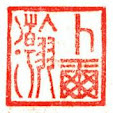The difference between guilt and regret is that the guilt never faces the wrongdoing straightforwardly. There's just this strong emotion of "I wish it hadn't happened. I wish I hadn't done it. I wish I had never gotten angry." Or, "I wish I hadn't done that embarrassing thing," and so on. Regret is the opposite of guilt. We acknowledge it, we expose to ourselves that we have done something harmful, and how it came about from our ignorance, but we don't get caught in emotions or story lines.
Dzigar Kongtrul Rinpoche, Tricycle, Winter 2004
Received as Daily Dharma from Tricycle.com on the 1st of August 2009
---
I read this extract with delight, it pinpoints the difference between guilt and regret so clearly. More clearly than I had previously understood in fact! And I can see it and relate to it directly. At points in my life I have felt guilt, however, in more recent times on retreat I have felt very deep regret over past actions and it feels so very different. Somehow bigger and stronger while also humble and vulnerable at the same time.
The clarity of facing something directly.
Monday, 3 August 2009
Subscribe to:
Post Comments (Atom)




3 comments:
This is a wonderful passage - thank you for posting it, and for your comments.
In my experience, regret (or remorse) arises whenever I take responsibility for actions (and intentions) that have harmed others or made things worse than they might have been.
Guilt, worry, anxiety, shame, and similar states seem to arise when I try to avoid responsibility for my part of a situation.
Perhaps responsibility and humility are facets of the same jewel, as are wisdom and compassion? (That was a question...)
I think you're right Barry. Once this "I" can get out of the way then there is no need to avoid responsibility or for any other kind of self-cherishing behaviours. (I.E. guilt etc) Then the jewel can shine! :-)
For those interesting in this topic, Tricycle.com have now added an article giving more context for the quote: "Realizing Guiltlessness - The Venerable Dzigar Kongtrul Rinpoche speaks with Pema Chodron."
Post a Comment